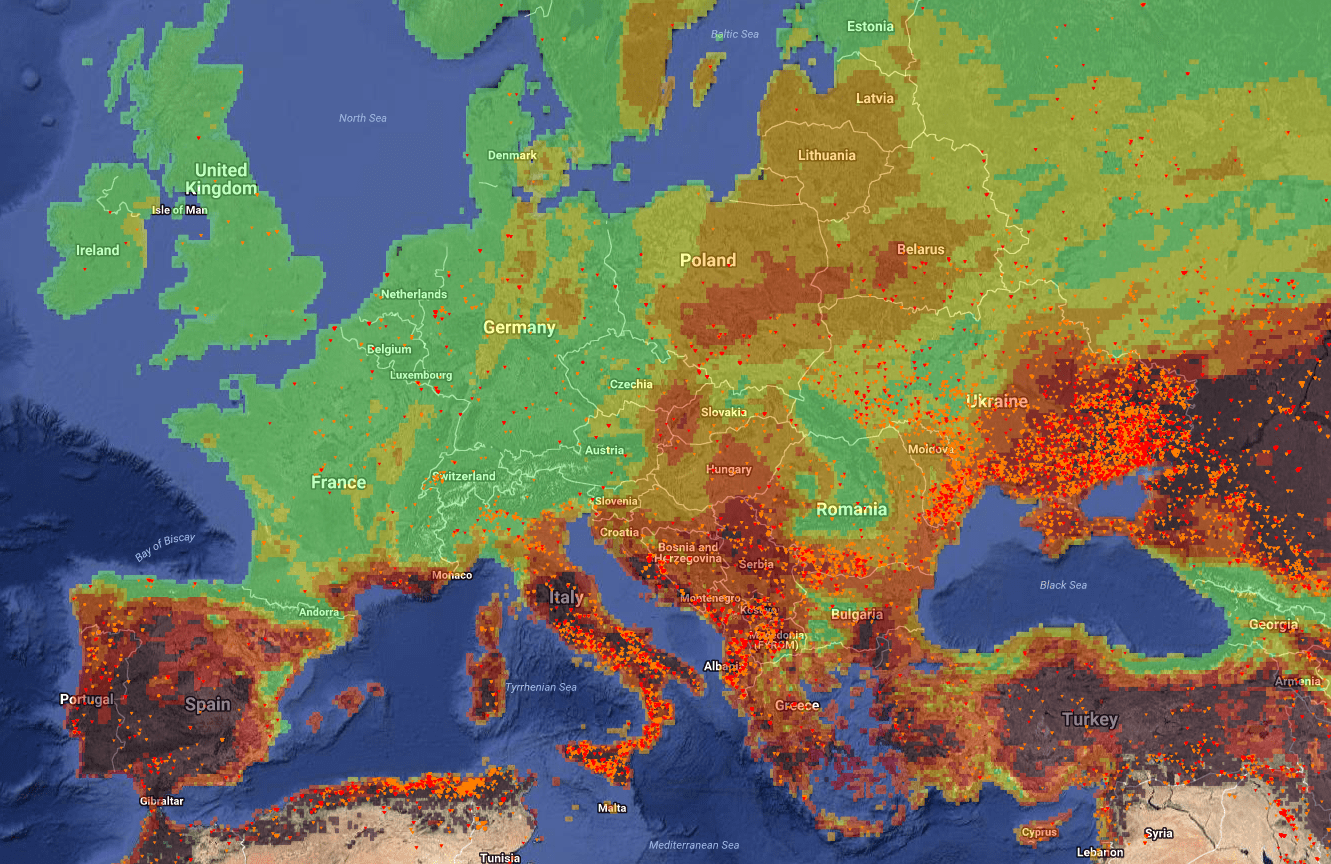
2017 is turning out to be a terrible year for wildfires, with widespread fires burning or having burnt across six continents. Huge blazes are currently burning in North America, South America, Canada, Russia and across Europe. To give you a sense of what’s going on, below is maps of the wildfires, as well as some images from some of the burning infernos. Here’s the lowdown:

- United States – the Forest Service is reporting that 2017 is going to be a worse than average fire year. So far 5.6 million acres of land have burned. This is 1.8 million acres more than the 10 year average. Nevada is having it’s worst fire season in 15 years, whilst Montana has already used up it’s fire fighting budget for the year.

- Canada – as of right now, fires are scorching British Columbia north of the border in what locals are calling the worst wildfire season since 1958. Firefighters from across the globe have headed to B.C. to help the effort. The smoke from the fires is billowing over the border to Seattle, where temps are at record breaking highs and the region is unnaturally dry.

- Europe – across the pond, Southern Europe is struggling to cope with the heatwave they are calling ‘Lucifer’. There has been 677 blazes so far, and in particular Italy and Romania are experiencing three times the normal amount of summer wildfires. And in June, 60 people died over the course of one weekend in Portugal as a result of wildfires. And these fires don’t seem to be letting up, in part due to the hotter, drier temperatures. Earlier this year, Ireland, a country more associated with rain, battled with fires due to 75% less rainfall. And even Greenland, a country better known for it’s snow, ice and white landscape, is currently battling a ‘sizeable wildfire’ according to NASA.

- Worldwide – wildfires are also burning in Siberia, Russia and in large areas of Brazil. Back in June, the Western Cape region of South Africa was devastated by wildfires, and in New Zealand, in February (their summer) the city of Christchurch called a state of emergency after a wildfire swept through and destroyed homes. And right back in January, a combination of drought and high temperatures caused an unusual number of wildfires in Chile.
Experts are blaming climate change for the huge increase in wildfires, saying it has extended the traditional wildfire season and increased the frequency of blazes. Warmer temperatures lead to increased evaporation and drier soils. Out west, warmer temperatures means snow melt happens earlier, so soils are drier for longer. Combined with less rainfall, and a huge amount of dead plant matter caused by tree killing insects in recent years, if a fire is started it has the means to burn hotter and spread further.
Call it what is it…Arson…